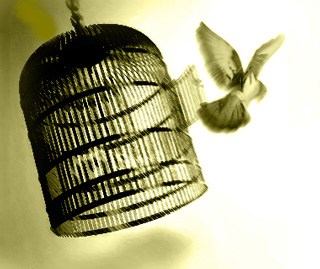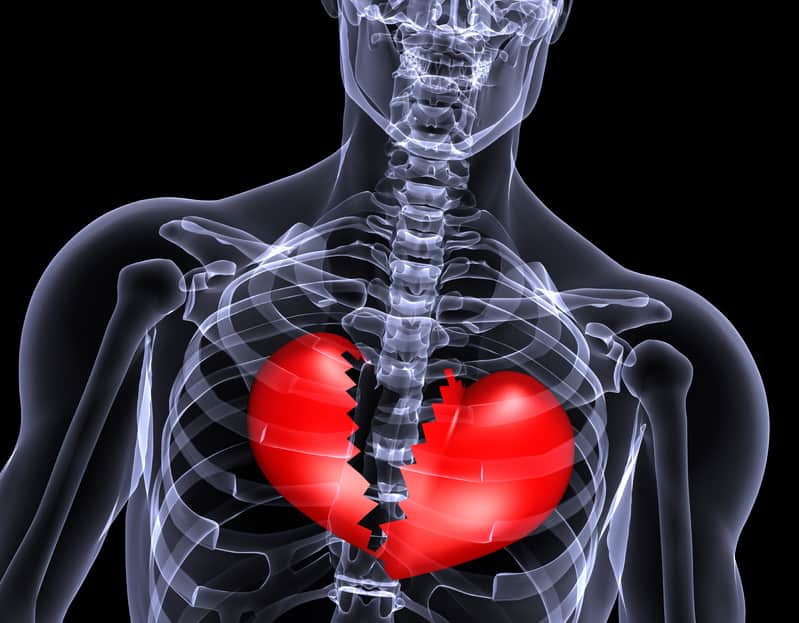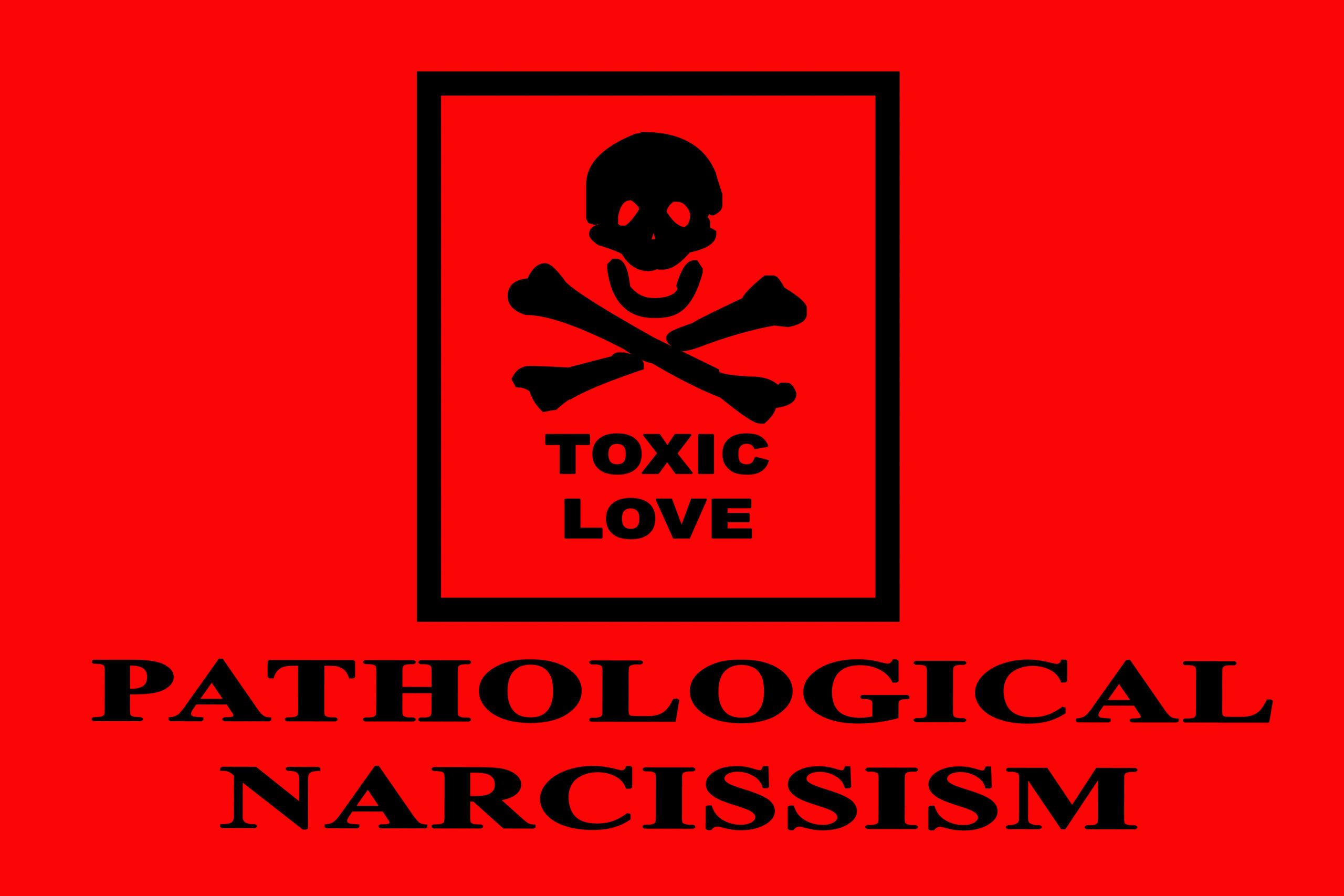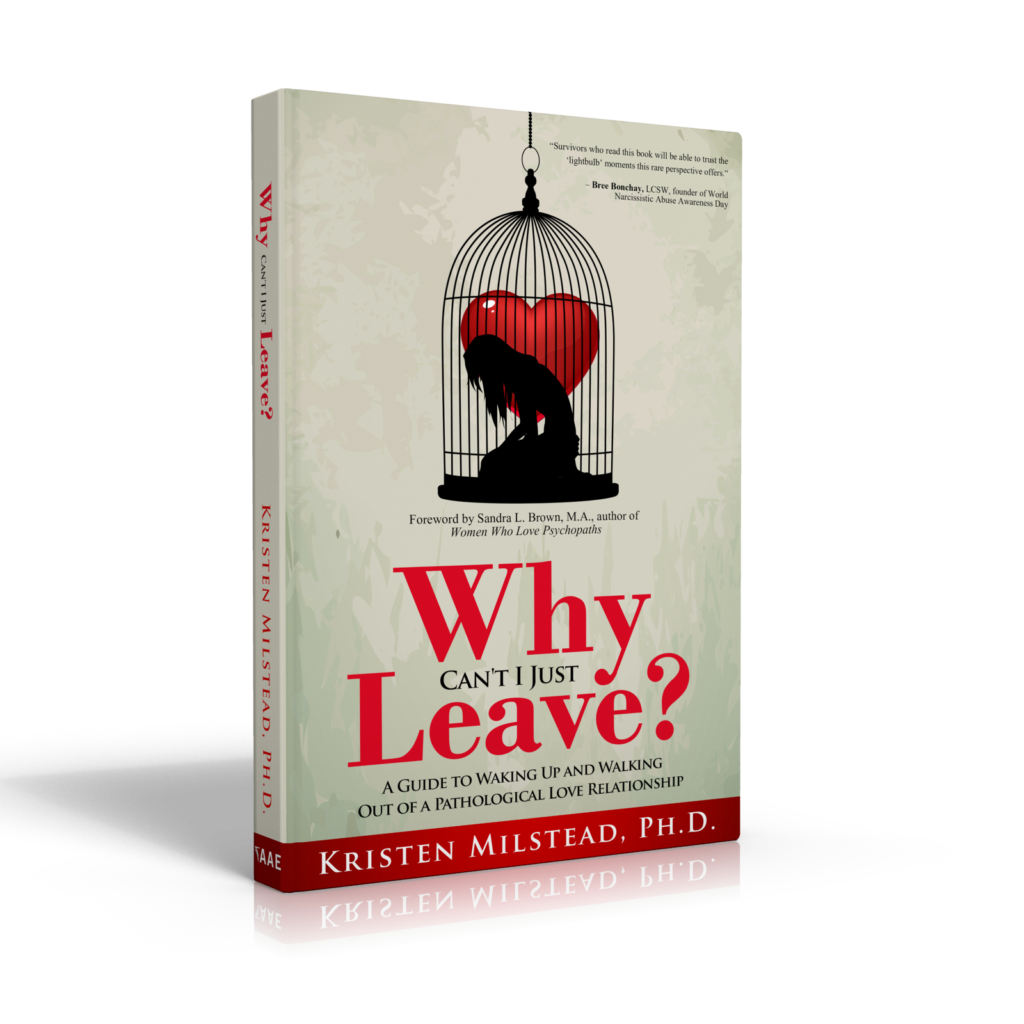Act One
“I made her believe that I understood needs and desires that she had kept hidden from most everyone else out of fear and shame, that I looked at everything about her and wasn’t scared of what I found. It’s true that I did… I can read every word of your soul, become deeply engrossed in the study of it until I’ve comprehended every word and detail… My desire to know every layer of you isn’t feigned, but interest isn’t love…” -M.E. Thomas, Confessions of a Sociopath
“I became the perfect partner, complimenting you, praising you and loving you in that oh so spectacular way. It was intense, it was scintillating and I made sure I became everything that you would want from a relationship. It was a great deal for us both. I made you feel ultra-special. You gave me the ultra fuel that I need. Does it matter that what I provided to you was based on something else? I would say not, you still got what you wanted didn’t you?” -H.G. Tudor, “Reality Check”
Brene Brown, the author of several books on vulnerability, shame, and belonging, defines “belonging” as the innate human desire to be part of something larger than ourselves.
We spend our lives hoping to find something greater than ourselves to belong to, and part of that is the feeling of acceptance. It’s a human need. We long to “be seen.”
Perhaps we have gone our entire lives and felt cloaks of invisibility draping our shoulders as we moved about our lives in clouded silence.
And, then, we met this person.
We met and fell in love with the narcissist. Love-bombing is described as a series of external acts of service, such as gifts and sex; hyperbolic expressions, such as stating that they have never loved anyone the way they love us; and the mirroring of our body language, likes and dislikes, and past experiences that engender trust.
And yet what is so carefully stitched together in the seam of all of these words and deeds is the element of “being seen.” It is not in what they do, but in how it makes us feel. By making us extensions of them, they become the liberators of the pieces of our soul that had been shrouded in darkness, whatever those pieces may have been. Act one.
I remember the moment I knew I was in love with him.
I was trembling, afraid to match his passion. “I love you,” he said again, softly. He used his body to push mine gently onto the bed behind me until he was on top of me. I was still frozen under him and some heavy thing was hovering somewhere inside me, something that I was holding onto in fear, but the weight of him was pressing into me in a way that was engulfing, safe, mesmerizing.
He kissed me again and smoothed back my hair. “Say it.”
In that moment, the truth hit me: I’d been saying the words he wanted me to say back to him for months but they hadn’t meant what I thought they’d meant. Not just to him but my entire life.
And then, right at that moment as we lay there, I just let go.
“I love you,” I said, my voice quaking. A dam burst inside of me. It was the truest thing I’d ever spoken. He was an inventory of beautiful quirks that I could hold in my mind one at a time to suspend myself in endless pleasure and they all flashed into my awareness at once.
At that moment, I knew I was in love and I gave in to it completely. And then I gave in to him while I lay under him and I let him see in my eyes that I was giving in to him. Some layer of something deep inside of me that had been buried exploded open, something with cracks in it that was long forgotten. Light filled it. I plunged ever downward into the feeling, sinking into it while he held me. In that brief moment, I was in him and he was in me.
Oh, my God. This is what love feels like.
I didn’t know you could feel “love” in your body the same way you could feel sadness or anger or fear.
Some part of me waited for him to reveal it all as an illusion, to confirm my deepest fears that I had been foolish to give in to that vulnerability. Instead, he drew me deeper into him. I saw him smile. He gently touched my face. “You know I can never leave you now. You’re my everything.”
The warmth inside me grew until I felt as if I might burst apart from the fullness of my love.
And that was what he gave to me. That.
And that was what he took away in an instant when I did not give him what it was he wanted.
Act Two
“To see a person’s hidden need and to answer it must be some form of public service… When I’m done, I’ll discard it as if it were newspaper, shaking my head at how the ink has stained my fingers gray… I make no promises of forever. Perhaps I do every so often, but you have no business believing me.” -M.E. Thomas, Confessions of a Sociopath
“I wish this wonderful period could have continued for the rest of our days together but it cannot… It is as if you are not trying any longer. It is as if you have become bored with my brilliance and you see no reason to admire me and adore me in the way that you once did… Your actions or perhaps more accurately, your lack of actions makes me feel less than what I am… The power I felt when you showed me that love and admiration is either no longer there or not as strong… You perhaps are not giving enough of yourself to me, you are not manifesting the love, the admiration, and the adoration in the way that powers me. It might be that sometimes it feels stale to me, that has happened, perhaps it is because you have become too familiar to me and therefore I do not derive the same reaction that I once did to the way you have behaved… I feel criticised by this behaviour of yours and therefore I have to protect myself. You see, I do not like criticism. In fact, I hate it and therefore I need to act promptly to defend myself against this criticism. That is why I have to do what comes next… This is where it turns nasty.” -H.G. Tudor, “Reality Check”
As the narcissist turned the key and opened our hearts, we also offered our own unconditional love and acceptance to the narcissist.
What we did not know is that it was a false self we offered it to, and it was not acceptance that the narcissist was after– it was admiration and adoration. A sense of belonging could not provide the narcissist what he or she needed, as their capacity to bond as we do to others is limited.
Thus the second the narcissist perceived that we were not adoring (whether true or not), in retaliation, he or she withdrew this feeling of acceptance, leaving us feeling more alone than we had even before we met them.
How can you love me then hate me? How do you turn your love on and off like a light switch?
And most importantly, why would you throw what we have away like this?
All of these things we wonder. It makes no sense, as to us, they are destroying a connection that feels like a lifeforce and rejecting the acceptance we have on offer as if it means nothing, in opposition to the words they have spoken to us about how important we are to them.
The reason the narcissist could withdraw their own acceptance so easily, however, is that it is not genuine. It is conditional, a quid pro quo, offered only so long as we are constantly supplying them with the attention they crave.
They will cruelly tear it down in an instant.
“How does it feel to be used?”
The pain we feel at the sudden turnaround is like razor blades scraping away at tiny portions of our flesh from the inside out.
Those tender parts we’d kept hidden or maybe never knew existed they now defile. Whatever word or deed will hurt us the most becomes their most treasured weapon. They will smile as they wield it, feeling nothing, and watch us crumble at their feet.
Act Three
“Emotionally, you will never lose that dull ache as you sit and reminisce about our time together and how wonderful being in love with me was. Your heart will never accept that it was not real. That crack, that fracture, that tiny chink that remains from your frenetic and devastating time with me shall always remain. It is through it that I can return as I slip, shadow like into your heart through that unhealed wound. That is why we did what we did; so we always had a way back in.” -H.G. Tudor, “The Devastation of the Illusion”
There is a difference between sadness and grief.
Sadness is what you feel when something doesn’t go your way.
Grief is what happens when something crucial is gone and it’s not coming back.
It’s what happens when something inside you is snuffed out.
Sadness can make you cry, but grief changes you. Every time you feel grief, something inside of you cracks open as it shifts around to accommodate whatever was lost… and gained.
When you grieve for what is lost, you mourn for the future that is never to be.
The hardest part to explain to anyone who has never been in a relationship with a narcissist is missing the narcissist after the relationship is over.
We can feel relief, anger, and fear– and yet still we feel an overwhelming sense of grief over the loss of the relationship, where once there was an overpowering, profound movement within us that brought us alive in a way we had never been before.
An unbearable sadness will overwhelm you. You will grieve the false promise of your most wished for heart’s desire. You’ll feel the pain in your body and your soul. You’ll feel it across space and time, across every age you’ve ever been and every age you ever will be as it cups itself around this emptiness that sold itself as hope.
You know you will never be able to find the words to explain the loss of that reality that had been constructed for you in which your broken pieces had briefly fit together. For that one moment in the entirety of your life, there was a clarity of purpose that had felt like destiny.
What to Realize
All Hope Is Not Lost. Mourning Is Expected. Yet the Future is Not the Narcissist’s Lie.
- We do not miss the narcissist, for we do not truly know the narcissist. What we miss is the unconditional feeling of belonging and being accepted.
- The biggest fear the narcissist instills in us is that we will never have it again. Hence the brainwashing phrases: “You’ll never find anyone like me.” “No one will ever love you like I do” and the constant threats to walk out and the silent treatments to make us fall in line.
- It was never genuine in the first place. If it was, they wouldn’t use what they learn about us to hurt us and they wouldn’t hold it hostage.
- The narcissist will try to come back using glimpses of that unconditional acceptance to get what he or she wants for as long as we will let him or her do it.
- Acceptance and belonging should never come at the price of abusive behavior and, with the narcissist, it always will.
- This tends to leave many survivors with a feeling of emptiness even after recovering from the relationship as if something has been lost even if they know leaving the relationship was positive.
- However, the narcissist has fed us lies about our future and what’s possible.
- The narcissist has also given us a powerful gift without realizing it. By learning how to open up our hearts, the narcissist showed us parts of ourselves we didn’t know were there and gave us a sense of what might be possible– with the right person.
- The good news is that most men and women do not treat their partners the way the narcissist treated us.
- Although it will take time, understanding what it is we actually miss about the relationship is the first step toward breaking the spell it holds over us.
- This lasting control the narcissist tries to have over us even in his or her absence is an illusion. The narcissist is not special.
- If those thoughts placed in our minds by the narcissist were “learned,” they can be “unlearned.”
- Yet those parts awakened in us and reflected back to us by the narcissist were real and still exist within us.
- Once we have healed from the relationship, once we have found a partner we can trust, we can tap into them again and, this time, feel what genuine, mutual acceptance with a partner feels like.






10 Comments
Joan
Thank you so much for your blog. I’m 69 years young & 19 months out of my relationship with my narc after 13 yrs (I ended it). But it STILL hurts knowing it was never real, it was all a lie & I was used the whole time! Sometimes the grief is unbearable but yet I know I have to keep moving forward. I have so many things to be thankful for so I try to concentrate on those things! Each day is a blessing!
Jim
Thank you for the article. I am just coming out of one, I am 59 and have never been involved in a relationship like this, hopefully my last. She accuses me of being the narc. I still love her , but I know now it is not a true love on her part, by her actions. I cannot believe there is so much about the topic online, it has helped me a lot knowing I am not the one that has been in this situation. Jim
Louisa
Thanks for this. Two months, no contact. Going through stressful stuff and I just wish I could pick up the phone and call him. I won’t but I feel so alone. This helped a bit.
Louisa
Thanks for this. Two months, no contact. Going through stressful stuff and I just wish I could pick up the phone and call him. I won’t but I feel so alone. This helped a bit.
Kristen Milstead
Hi Louisa: I’m so glad this article gave you some comfort, but so sorry about what you are going through. You are not alone. Please stay strong and take care of yourself. -Kristen
Ivanka
I’m so glad I found your blog. You captured my feelings so brilliantly with this post. It’s been 3 months no contact and I still find myself ruminating on how he got into my head. Please keep up the great writing!
Ivanka
I’m so glad I found your blog. You captured my feelings so brilliantly with this post. It’s been 3 months no contact and I still find myself ruminating on how he got into my head. Please keep up the great writing!
Kristen Milstead
Hi Ivanka: I’m so glad to hear that the articles have been so helpful to you. They come from my heart to everyone else’s who has ever been through one of these relationships and to hear they have touched you somehow helps me heal too. I empathize with the ruminations you speak of. Trying to answers all the questions is part of giving ourselves closure I think. This is just a part of the process. Stay strong and thank you so much for reading. -Kristen
Jacky
Hi Kristen,
Thank you again.
In some of your articles you tell that knowing more about how the narcissist thinks has been very helpfull in your process of letting go. I tool a while but now i can understand why that can help to shift the way i see him. I think from my own perspective(with empathy, solution oriented, co-dependent) that way i will keep falling for his trap. His perspective/motive is totally different and i’m ready to know more about it and start seeing him for what he is. Its scary i have to admit. It changes my view of people and it forces me to change myself. Your article about/from Elinor Greenberg and her exercise helped me to see this more clearly.
Can you tell me where i can find more insight in how the narcissist thinks and acts?
Thank you again.
Jacky
Kristen Milstead
Hi Jacky: I’m glad that you have found the articles about thinking from the narcissist’s point of view. It is really scary–that’s a good word for it. I got your private message and will write more there. -Kristen